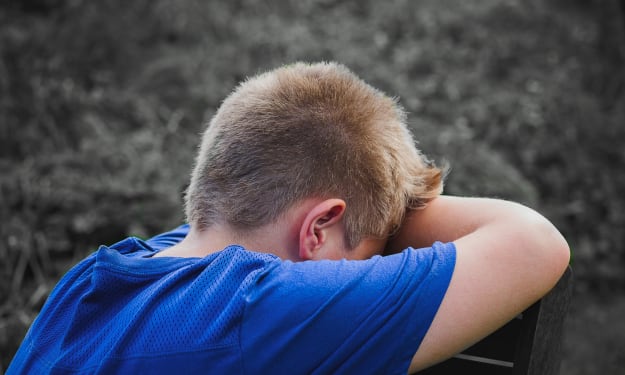
She tapped it on the table, turned it then tapped it again.
“I’m sorry,” she said out of habit. And out of habit, she walked the little black book end-over-end and tapped the table with it again. The book made tiny controlled cartwheels between her finger and thumb, sticking the landing each time. “I was in outer space.”
I was at risk of drifting away too. The metronome of the turn-turn-tap was comforting and confounding. How was it able to overwhelm the very important special drink demanders who bellowed exacting instructions before falling through the looking glass of their smart phones just long enough to miss their own names being called?
“Will you remake this? It’s gone cold. You’ll re-do it, won’t you?”
After a more than a year by myself, this place was louder than I imagined. Too many people were too close for comfort. I longed to have other humans within reach, but now six feet apart felt too close. Maybe I only needed specific humans in my little bubble. The turning and tapping of the small leather book centered me somehow.
“Have you opened it?”
“No.”
The elastic band meant to hold it closed was doing its best. Hanging on like the rest of us, trying to keep things together. Maintaining appearances. Doing what we all tried to do “in these unprecedented times.” It was succeeding. The book remained closed and Schrödinger remained correct.
I should have taken note and bound myself a little tighter or tethered one end to the earth at least. I was losing it a little and the latte brigade was a touch too bright, a bit too shiny. This was not normal anymore. We grabbed our things and freed up the table for a chatty threesome.
“Do you know how to get there?” I teased her.
It had been a long time, but Jacks said she knew the way. She jammed the book in her bag and grabbed her keys. I followed her to her car and we got in. She pulled out of the space too quickly. “I’m driving,” she announced after we were already on the road.
“I see that,” I assured her. I hoped she had the same thought several times during the trip. “I see that man crossing the street,” or “I see that stop sign,” are some of the comments I would have welcomed.
I settled in. It wouldn’t be long, but my brain and my eyes had some catching up to do. Sure, I had been to the grocery store or to run small errands, but I hadn’t taken any drives where I could see trees and hills and a horizon in the distance. Are three dimensions better than two if that third one makes you acutely aware of how small you are and how far away you feel? Sometimes two dimensions are plenty.
Two may be too many at times, like when you’ve had back-to-back meetings of wall-to-wall faces. Do I want to remain connected? Yes. But if we were meeting in person would we sit in a circle so tight that our faces were no more than two feet away from every other person in the meeting? No. Now we have to be camera-ready from our kitchens and bedrooms just so Caroline’s assistant can tell all twenty of us about her third successful sour dough.
Don’t get me wrong. I want to see Julie’s dogs and marvel at Will’s tomatoes, but I don’t always have the energy to smile and speak earnestly to camera about what I’ve been doing when the camera is off. I’ve been sleeping and eating, binge watching TV shows and not reading enough. I actually work at my desk. That is it.
“They didn’t look at each other. No eye contact at all.” That was me. Out loud and out of context.
“What?” Jacks had no patience for my observations. “Who? What are you on about?”
“Those girls at the coffee shop. The ones we gave our table to. They were talking the whole time and they never looked at each other.” Just their phones. I do the same, making sure to look to camera so that I appear to be looking at each person even though they remain in my periphery.
Keeping things together.
Maintaining appearances.
Back-to-back.
Wall-to-wall.
Turn-turn-tap.
Surely, my own tether will snap and I will tumble up, cartwheeling away until the earth is as small as I feel. Until the distance and dimensions are just right. Am I Alice now or are we “tumbling in turmoil” like Paul Simon?
“Wake up,” She tapped my arm. “We’re here.” Her door creaked open and slammed shut. I stretched a little and got out, planting both feet firmly on the ground again.
“Yes,” I agreed, “we are here.”
I looked at Jacks. She was determined. Marching toward the front door. Going straight for it like it was nothing, like she had seen her mother yesterday. She hadn’t. They were on the outs as long as I could remember.
“Hello, Jacquelyn.”
“Mom, no one calls me that.”
“I call you that.”
Jacks went inside and I followed. I would have followed her anywhere, to be honest. I was here wasn’t I? Back to earth and all, and in the den of this lioness.
“Mom, I brought the book.” Jacks pulled it out of her bag and laid it on the table. Flat this time. No tumbling. No tapping.
Her mom looked at it for a long moment. It had been years since she had seen it. Her own mother, Jacks’ grandmother, turned the pages every night after her father passed away. She wrote in it sometimes, dates or small details she recalled – but mainly read and re-read the notes he’d taken, the notes he left for her. They were often just a grocery list. Or a reminder about an appointment.
He’d say, “I love you. We need milk.”
He said, “Today was beautiful. You are beautiful. Don’t forget to stop at the post office.”
Page to page.
Back to back.
Jacks’ grandmother stayed with her when everything shut down. She stayed until the end. Jacks dealt with almost everything alone, including her grief. She was close to her grandparents, even named after her grandfather. She knew that book from beginning to end because she’d turn to a page and ask her grandmother to tell her about that day. To her, the book was only good. It was alive.
When they shared it with me over our two dimensional screens, we laughed. We thought it would be filled with love letters from the war or heartfelt poetry. We were expecting Nicholas Sparks.
“Oh,” she laughed too, “Oh, no, he wasn’t like that.”
“But this is just a grocery list,” Jacks said.
The things people do in these times and others. The most assuredly mundane precedents.
“Yes,” her grandmother agreed, “but I remember that day.”
After her grandmother was gone, Jacks didn’t open the book any more. She gave it to her mom. She hugged her and we left.
That book remained confounding. How could she let go of it so easily? “I thought it was all you had from your grandma. That must have been hard.”
“Oh, no,” she assured me, “That’s not all. She left me twenty-thousand dollars.”
“But money… it’s not the same. What will you do with it?”
“Nothing. Everything. I love you. We need milk.”






Comments
There are no comments for this story
Be the first to respond and start the conversation.